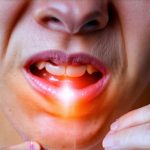Reflux flare-ups are an agonizing experience – that burning sensation in your chest, the sour taste at the back of your throat, and sometimes even the feeling like food is stuck. They can disrupt sleep, impact work productivity, and generally steal your enjoyment of life. While many people manage chronic acid reflux with medication and lifestyle adjustments, even diligent individuals can experience periods where symptoms intensify unexpectedly. Understanding how to navigate these flare-ups isn’t about finding a quick fix, but rather about proactively soothing your system and minimizing the discomfort while allowing it time to recover. It’s important to remember that everyone experiences reflux differently, so what works for one person may not work for another, requiring some experimentation and self-awareness.
This article will explore strategies for managing these uncomfortable episodes, focusing on immediate steps you can take during a flare-up and longer-term adjustments to help prevent them. We’ll move beyond simply listing “do’s” and “don’ts,” aiming instead to provide a comprehensive understanding of how your digestive system functions (and misfunctions) during reflux, and how you can support its natural healing processes. Remember that consistent communication with your healthcare provider is vital for developing a long-term management plan tailored to your individual needs – this information supplements, not replaces, professional medical guidance. You might need to know what to ask your doctor before a GI procedure if you are experiencing chronic issues.
Immediate Relief Strategies During a Flare-Up
When the burn starts, it’s tempting to reach for the strongest medication you have available. However, immediate relief doesn’t always require a pill. Often, simple adjustments can significantly lessen the discomfort and allow your body to start mitigating the issue. The first step is recognizing what triggers your flare-ups; keeping a food diary or symptom journal can be incredibly helpful in identifying patterns. Is it stress? A particular food? Lying down after eating? Knowing your triggers allows for preventative measures, but during an active flare-up, you need to focus on damage control.
The immediate goal is to neutralize stomach acid and reduce irritation. This can involve several tactics: sipping water – not large gulps which can exacerbate the issue – to dilute stomach acid; chewing sugar-free gum (saliva helps neutralize acid); or consuming a small amount of bland food like plain crackers or banana. Avoiding lying down immediately after eating is crucial, and elevating your upper body while resting can minimize reflux. Remember that these are temporary measures designed to provide comfort while your system recalibrates – they aren’t long-term solutions. If you’ve had a cheat day and now have reflux, these strategies can help calm your stomach.
Finally, consider the power of mindful breathing. Stress often exacerbates reflux symptoms, creating a vicious cycle of anxiety and discomfort. Taking slow, deep breaths can help calm the nervous system, reducing muscle tension in the esophagus and stomach. Focus on diaphragmatic breathing – inhaling deeply into your abdomen rather than shallowly into your chest – for maximum benefit. This isn’t about curing the reflux immediately, but about managing the accompanying stress that often amplifies its effects.
Dietary Adjustments During a Flare-Up
During a flare-up, your digestive system is already working overtime and struggling to cope. Introducing further stressors through food can make things exponentially worse. The key principle here is simplicity and blandness. This isn’t about deprivation; it’s about temporarily prioritizing foods that are gentle on the gut.
- Avoid acidic foods: Citrus fruits, tomatoes, vinegar-based dressings, and spicy dishes should all be sidelined during a flare-up.
- Steer clear of fatty foods: Fatty foods take longer to digest, increasing the risk of acid reflux. Fried foods, rich sauces, and high-fat meats are best avoided.
- Limit caffeine and alcohol: Both caffeine and alcohol can relax the lower esophageal sphincter (LES), allowing stomach acid to flow back up into the esophagus.
- Focus on easily digestible options: Think steamed vegetables, plain rice, boiled chicken or fish, and bananas. Small, frequent meals are generally better tolerated than large ones.
These dietary changes aren’t meant to be permanent; they’re a temporary measure designed to give your digestive system a break while it recovers. Once the flare-up subsides, you can gradually reintroduce foods one at a time, paying attention to how your body responds. This process of elimination and reintroduction can help identify specific food sensitivities that may be contributing to your reflux. It’s helpful to rebuild your diet gradually after a flare-up.
Soothing Beverages & Hydration
Hydration is essential for overall health, but the type of beverage you choose during a reflux flare-up matters significantly. While water is always a good choice, certain beverages can actively soothe your system while others exacerbate symptoms. Avoid carbonated drinks, as they introduce gas into the digestive tract, potentially increasing pressure and triggering further reflux. Similarly, avoid fruit juices (even seemingly healthy ones) due to their acidity.
Instead, consider herbal teas like chamomile or ginger tea – both have known anti-inflammatory properties that can help calm the digestive system. However, be mindful of temperature; extremely hot liquids can irritate the esophagus. Lukewarm is generally best. Almond milk has also been shown to neutralize stomach acid for some individuals and may provide relief, but again, individual responses vary. A small amount of coconut water can also be helpful due to its electrolyte content and soothing properties.
Remember that staying adequately hydrated helps dilute stomach acid and keeps the digestive system functioning optimally. But, it’s not just about how much you drink; it’s about what you drink. Experiment with different options to find what works best for your body during a flare-up. If you are experiencing a food sensitivity flare-up, hydration is even more critical.
Long-Term Prevention & Lifestyle Changes
Reflux isn’t simply about avoiding trigger foods – it’s often intertwined with lifestyle factors that can significantly impact your digestive health. While acute relief strategies are important, addressing these underlying issues is crucial for preventing future flare-ups. This involves a holistic approach encompassing diet, exercise, stress management, and sleep habits.
One of the most impactful changes you can make is to manage your weight. Excess weight puts pressure on the abdomen, increasing the likelihood of acid reflux. Regular physical activity – even moderate exercise like walking – can help reduce abdominal pressure and improve overall digestive function. Aim for at least 30 minutes of moderate-intensity exercise most days of the week. Beyond diet and exercise, consider your sleep posture: elevating the head of your bed by six to eight inches can significantly reduce nighttime reflux.
Stress management is also paramount. Chronic stress can disrupt digestion and exacerbate reflux symptoms. Explore various relaxation techniques like yoga, meditation, or deep breathing exercises to help manage stress levels effectively. Finally, pay attention to how you eat – eating slowly and mindfully allows your body to properly digest food and reduces the risk of overeating, which can trigger reflux. You may need to recover after a digestive flare-up by making these lifestyle changes.
It’s important to reiterate that these are general guidelines and individual experiences will vary. Consulting with a gastroenterologist or registered dietitian is essential for developing a personalized management plan tailored to your specific needs and health conditions. Don’t hesitate to seek professional guidance; it’s the most effective way to take control of your reflux and reclaim your quality of life. If you have a baby who refuses to eat, seeking professional advice is also essential, as it could be related to digestive issues. Finally, if you frequently experience reflux, you can soothe the gut after trigger meals by making mindful changes to your diet and lifestyle.


















